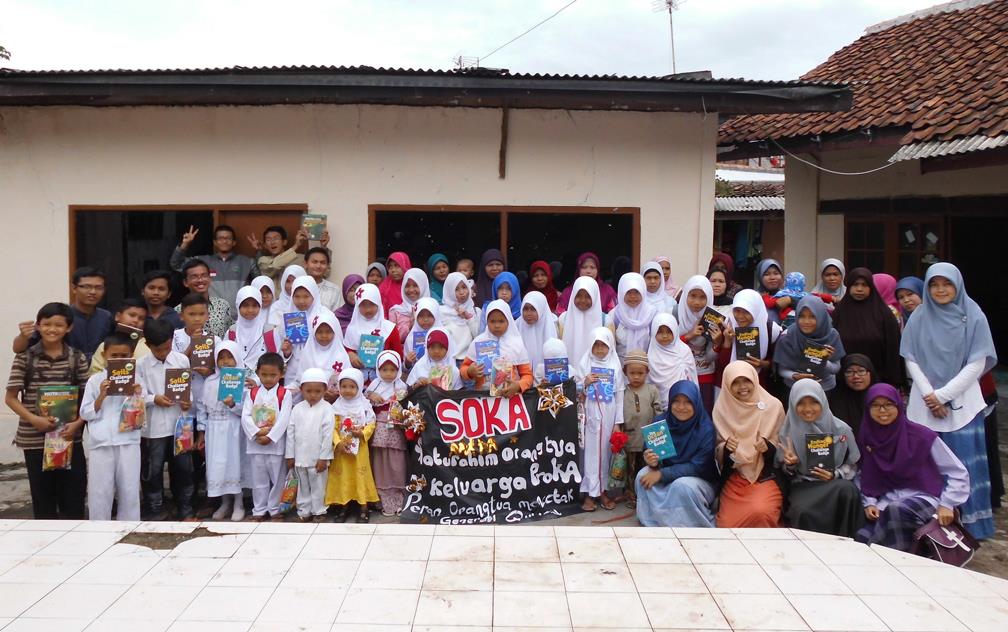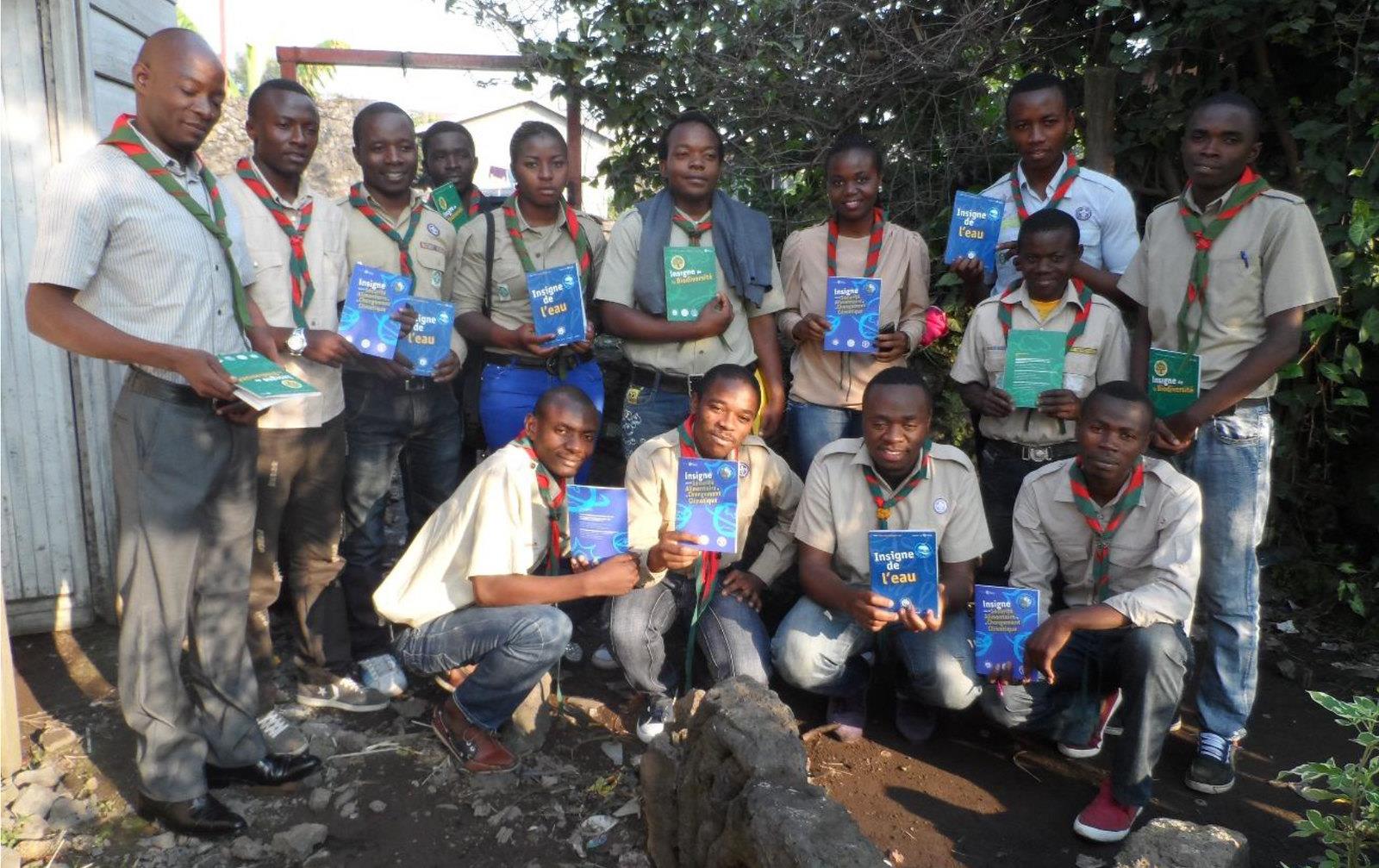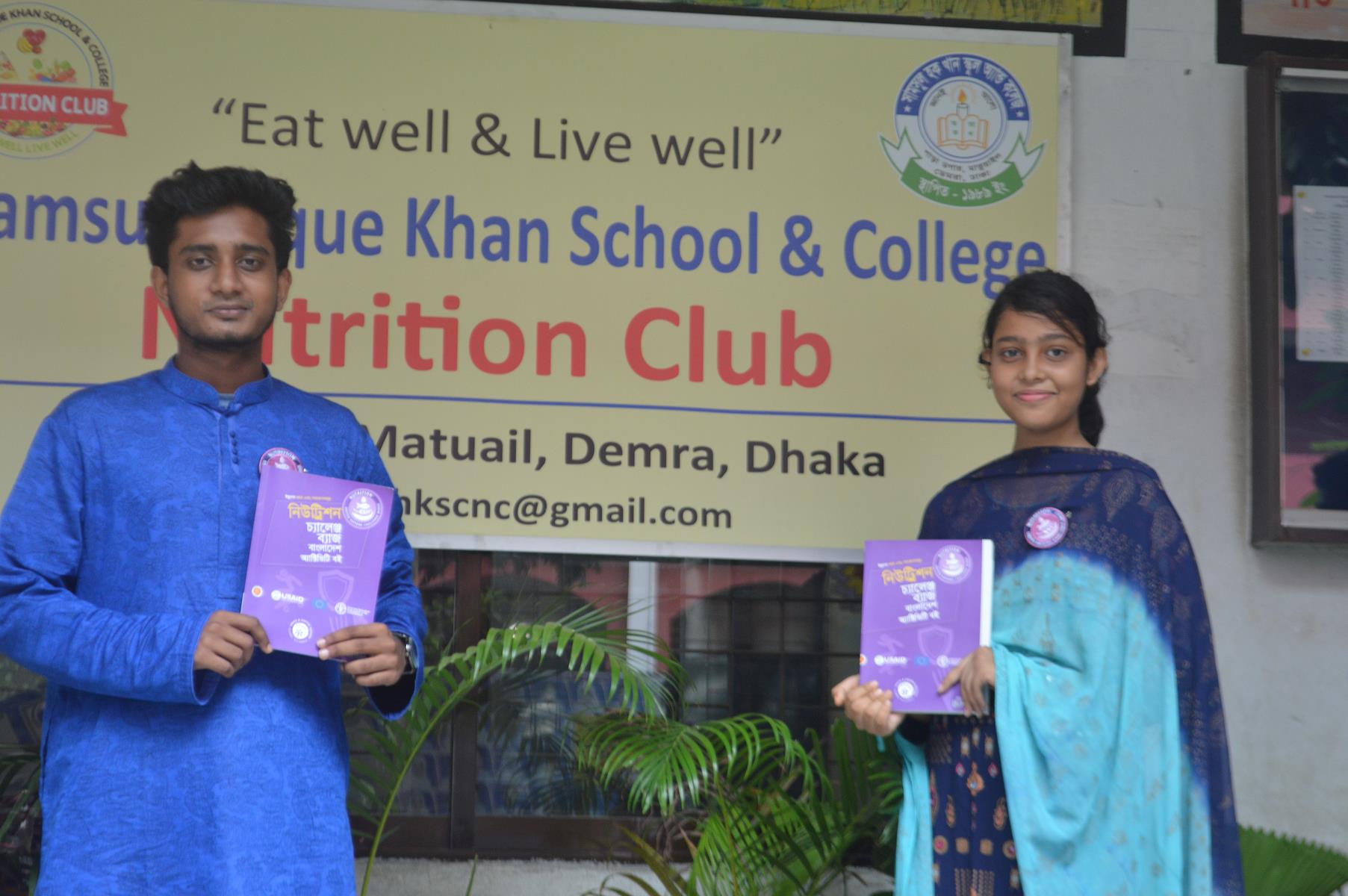
Challenging youth to make healthy eating fun
The Nutrition Challenge Badge initiative helps young people in Bangladesh and worldwide form good eating habits
Youth leaders around the world are promoting the Nutrition Challenge Badge, an initiative by the Youth and United Nations Global Alliance (YUNGA) that has already inspired thousands of young people to explore healthy and environmentally friendly eating habits. ©FAO/Saikat Mazumdar
31/03/2022
There have long been icons of healthy eating in popular culture. Popeye the Sailor Man, a lean, muscular cartoon superhero, convinced the children of his day to eat more vegetables by gulping down spinach that made him strong in an instant. A more recent example is Mulan, the legendary folk heroine from China, who eats a bowl of savoury rice “happy” porridge in preparation for warrior training.
Today’s superheroes of good nutrition are the youth leaders and teachers who are organizing the Nutrition Challenge Badge around the world. The initiative by the Youth and United Nations Global Alliance (YUNGA)— a partnership between FAO, sister United Nations organizations, civil society and other entities— has already inspired thousands of young people to explore healthy and environmentally friendly eating habits.
The YUNGA badges are awarded to children and youngsters upon completion of a series of challenges focused on a variety of topics, from climate change and biodiversity to pollinators and healthy eating.
Teachers and youth leaders are given booklets containing scientific advice on food safety, healthy diets and lifestyles, cooking tips and scores of fun activities, such as preparing “potluck” meals based on a list of essential nutrients or holding a “Health Day” with events such as relay races.
The idea is to empower children and young people and inspire action in communities in a way that is both enjoyable and tailored to local contexts.


YUNGA has been active in many countries, such as Indonesia (left) and the Democratic Republic of Congo (right). ©FAO
One country where the project has been a success is in Bangladesh, where FAO has been implementing its “Meeting the Undernutrition Challenge” project since 2019.
The Nutrition Challenge Badge booklet was specifically adapted to the Bangladeshi context and translated into the Bengali language. Funding from the United States Agency for International Development and the European Union, in partnership with the Ministry of Food and the Bangladesh Institute of ICT in Development Foundation, helped introduce the challenge to 600 10- to 24-year-olds in 20 schools, colleges and universities in the cities of Sylhet, Dhaka, Rangpur, Chattogram, Mymensingh and Rajshahi.
“I earned the Nutrition Challenge Badge for doing all the activities possible, and it inspired me to do even more in the future,” said Rasel Shikder, a high school participant from Dhaka.
Rasel said his favourite activity was gardening, since it “gives us healthy food but also makes us physically active.”
Long-term change
One fifth of Bangladesh’s population is aged between 15 and 24. Educating its younger generations about the benefits of good nutrition, healthy and environmentally friendly eating habits, food choices and lifestyles, plays a crucial role in initiating the change in attitude and behaviour for a more sustainable future.
“They are the agents of change and will drive the future of Bangladesh,” said Maki Noda, FAO’s Programme Coordinator in the country.
Noda said she was “truly amazed by the young people’s commitment, passion and creativity to promote nutrition in their family, schools and communities.”
Participants felt very excited about receiving their badges. All of them completed at least one compulsory and one optional activity from each theme, and some completed as many as eight activities in a month.
“The YUNGA challenge badges have been used in more than 100 countries. Their popularity is due to their design, which allows educators to create their own context-specific transformative curriculum. This helps empower young people, from the age of five to their twenties, to become major change-makers in their community,” said Reuben Sessa, FAO’s Global YUNGA Coordinator.

Hundreds of students have taken part in the Nutrition Challenge Badge in Bangladesh. ©FAO/Shihab Sabab
The initiative faced an additional challenge from the COVID-19 pandemic, which shut down schools for long spells. However, the youngsters were able to continue to carry out their challenges at home, thanks to online sessions.
The challenge not only strengthened their knowledge of good nutrition and sustainability but also helped them maintain a healthy lifestyle during the pandemic.
Achieving YUNGA’s goals may take a bit longer than the instant hit Popeye’s muscles got from eating spinach, but Noda believes the initiative has given Bangladesh’s youth “more knowledge on nutrition and diets, and opportunities to have healthy lifestyle discussions and tools to change their nutrition behaviours.”
Slow but steady change can lead the way, with the occasional challenge helping to motivate it.
Formed in 2009, YUNGA is a partnership between United Nations organizations, civil society and other entities that work with children and young people. It acts as a gateway for youth from around the world to participate in the activities and initiatives of the United Nations. FAO serves as YUNGA’s host, and the initiative is based at the agency’s headquarters in Rome, Italy.
Related links
Learn more
- Website: Youth and United Nations Global Alliance (YUNGA)
- Publication: Nutrition Challenge Badge
- Social Media: YUNGA Facebook page

